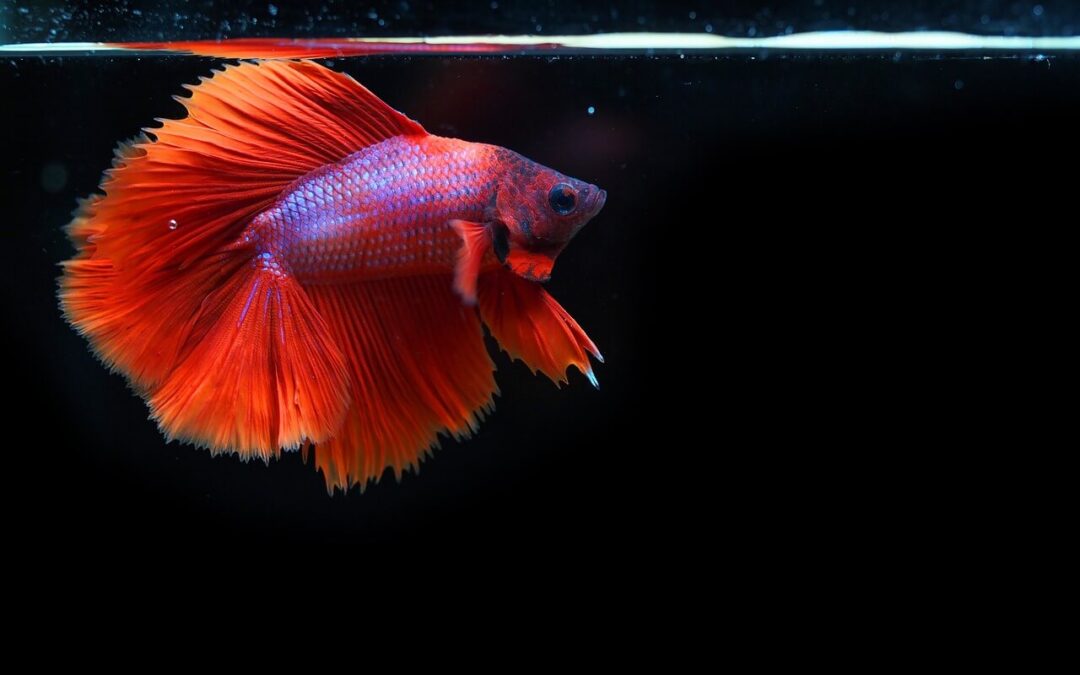If you’re a proud Betta fish owner (or planning to become one), one of the most important things to learn is how to keep their environment just right—especially when it comes to water temperature. Betta fish, also known as Siamese fighting fish, may look hardy with their flowing fins and vibrant colours, but they are tropical fish that thrive in warm, stable conditions.
So, what water temperature is best for a Betta fish? Let’s explore everything you need to know to keep your Betta happy, healthy, and stress-free.
The Ideal Temperature Range for Bettas
The ideal water temperature for a Betta fish is between 75°F and 80°F (24°C to 27°C). This range closely mimics the warm, slow-moving waters of their natural habitat in Thailand and other parts of Southeast Asia. When kept within this temperature zone, Betta fish are more active, have better immune function, and show off their brilliant colours.
Temperatures outside this range—even just a few degrees off—can have a noticeable impact on their behaviour and health.
Why Water Temperature Matters for Bettas
Betta fish are ectothermic, which means they rely on their environment to regulate their body temperature. When the water is too cold or too hot, it can throw off their metabolism and overall wellbeing.
Here’s what can happen when the temperature isn’t right:
-
Too Cold (< 75°F / 24°C):
Bettas may become lethargic, refuse to eat, and become more prone to diseases such as fin rot or ich. Their immune system slows down, making it hard to fight off infections. -
Too Warm (> 80°F / 27°C):
While Bettas can tolerate short periods of slightly warmer water, long-term exposure to high temperatures can increase their metabolism. This leads to faster ageing, increased stress, and a shortened lifespan.
Stable temperatures are just as important as the correct range. Frequent fluctuations can cause stress, which weakens the immune system and leads to illness.
Should You Use a Heater for Your Betta Tank?
Yes, a heater is highly recommended. Unless you live in a tropical climate where your room consistently stays within the Betta-safe temperature range, an aquarium heater helps maintain consistent warmth.
Some key reasons to use a heater include:
-
Room temperatures vary: Most households fluctuate in temperature throughout the day and night.
-
Winter can be dangerous: Even in warm climates, indoor temperatures can drop significantly in colder months.
-
Stability is key: Heaters maintain a constant temperature, reducing the stress caused by swings in temperature.
Tip: Use an adjustable heater with a built-in thermostat so you can fine-tune the water temperature. Pair it with a thermometer to monitor it daily.
Best Tools to Monitor and Maintain Betta Water Temperature
To keep your Betta tank in the optimal range, invest in a few key tools:
1. Aquarium Heater
Choose a reliable, adjustable heater suited to your tank size. For small tanks (2.5 to 5 gallons), low-wattage heaters (25W–50W) work best. For larger tanks, opt for higher wattage.
2. Digital Thermometer
Stick-on or floating thermometers can help, but a digital one with a probe is more accurate. Check the temperature daily to ensure consistency.
3. Thermostatic Controller (Optional)
This device can act as a backup system to shut off your heater if it malfunctions. It’s an extra layer of safety to prevent overheating.
What to Do If Your Tank Gets Too Cold or Too Hot
If your water temperature falls outside the ideal range, here’s how to respond:
If it’s too cold:
-
Turn on or increase the setting of your heater.
-
Insulate the tank by wrapping it with a towel (temporarily).
-
Move the tank away from windows or draughty areas.
If it’s too warm:
-
Turn off the heater temporarily.
-
Use a fan to gently blow across the water surface (evaporative cooling).
-
Relocate the tank to a cooler area in your home.
Do Water Changes Affect Temperature?
Yes, and this is something many new Betta owners overlook. When doing a water change, make sure the new water matches the tank temperature. Sudden changes—even a few degrees—can shock your Betta.
Use a thermometer to check the temperature of the water before adding it to the tank. This simple step can help you avoid unnecessary stress or illness.
Quick Betta Tank Tips for Temperature Success
-
Keep the tank out of direct sunlight to avoid overheating.
-
Avoid placing tanks near windows or air conditioners.
-
Always have a thermometer in your tank to check temperature at a glance.
-
Adjust heater settings slowly—1 or 2 degrees at a time—to avoid shocking your Betta.
Final Thoughts: Warm Water, Happy Betta
To sum it up: the best water temperature for a Betta fish is 75°F to 80°F (24°C to 27°C). Keeping your Betta’s water warm and stable isn’t just a matter of comfort—it’s a vital part of ensuring they live a long, healthy life.
With the right heater, thermometer, and a little daily care, you can easily maintain the perfect environment your Betta fish needs to thrive.
FAQs:
Q: Can a Betta fish live without a heater?
A: It depends on your climate. If your room consistently stays in the 75–80°F range, it might be possible. But in most cases, a heater is necessary to ensure temperature stability.
Q: What happens if the water temperature drops suddenly?
A: A sudden drop can shock your Betta, causing stress, loss of appetite, and vulnerability to disease. Always warm water gradually and monitor your heater.






